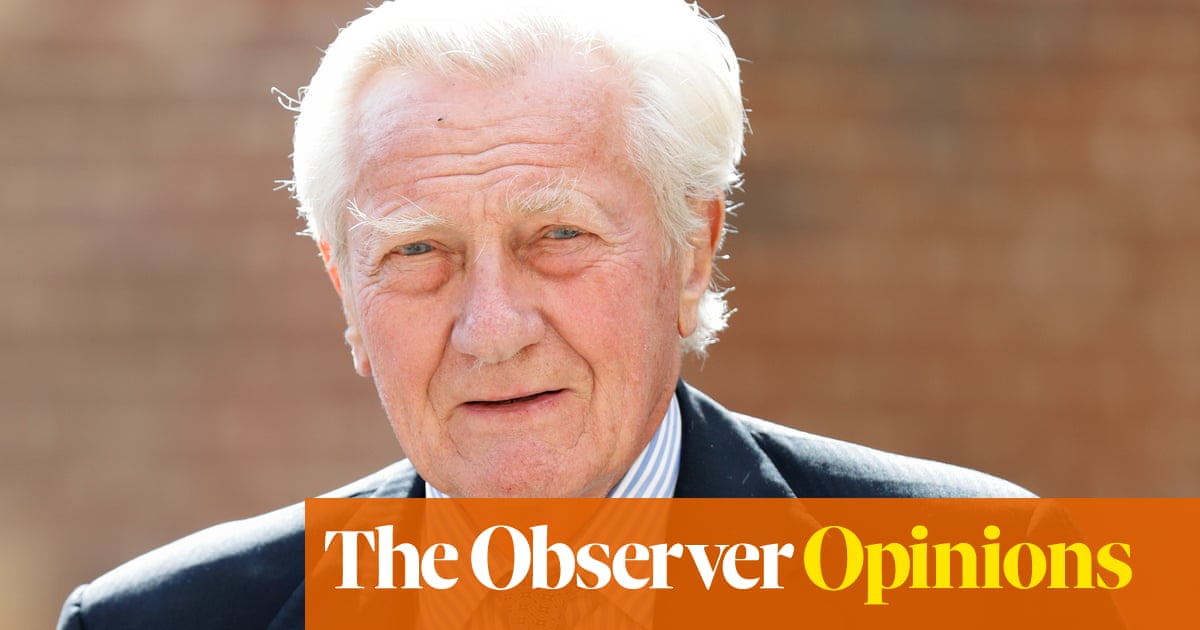
Along, low groan echoes around the NHS. Not again, please? The new health secretary, Sajid Javid, pledges far-reaching reforms and the most comprehensive review since the 1980s. Too many new health secretaries start there, at the bottom of the learning curve, but Javid adds threats: “Hospital managers who fail to clear mounting NHS backlogs will be sacked under government plans for reform,” the Times was briefed, with him “preparing new powers to seize control of poorly performing hospitals”.
That means the return of perverse incentives to cut waiting lists by rushing through ingrown toenail procedures ahead of complex, urgent cases. Forget care: in fear of the axe, only numbers will matter to NHS bosses. We’ve been here before: remember the Mid Staffs hospital scandal?
Here we go again, a regime of terror-and-targets, where top-down bullying gets passed down the line. New ministers like to bring in captains of industry to “sort out NHS management”: former M&S boss Stuart Rose was summoned in 2015 – his 19 recommendations were ignored. But Javid has gone one better: he’s called in the army, in the shape of retired vice-chief of defence staff Gen Gordon Messenger, late of Afghanistan and Iraq.
“No reform is easy, otherwise it would’ve been done already,” the health secretary declares, as if unaware of the NHS reform turmoil of the last decade, all driven by Conservative governments. The entire service was turned inside out by then health secretary Andrew Lansley in 2012, broken into jagged fragments, forced to compete for every contract with private providers. Does Javid know that another NHS reform bill is going through parliament right now, originally designed to repair that damage by replacing competition with collaboration in new integrated care systems, so that local health and social care work together? But no new minister wants a predecessor’s secondhand reforms. They want to re-disorganise the NHS, starting with their own blank sheet of paper.
NHS historian Chris Ham, former head of the King’s Fund, has chronicled the turbulence caused to the NHS by major reforms that have taken place roughly every five years since 1948. I have covered the NHS since writing a book on it in the 1970s, and I can reel off the permanent revolution in structures: areas, districts, regions, sub-regions, autonomous free-marketeering foundation trusts, rescinded again to obey orders – and on and on. Experienced NHS managers and their representative organisations never protest – or not on the record. That would only risk confirming the rightwing press view that this great “monolith” (it’s not) is an inert bureaucratic beast whose overpaid bosses resist all change.
Maybe Javid is unaware of the NHS’s remarkably agile response to the Covid crisis. Managers sprang into action, reorganised, released 34,000 beds, everyone changed roles outside their silos, critical care beds were created overnight and the NHS mobilised to vaccinate the entire population, all done locally, not centrally. Failures came when ministers took top-down control (with the business acumen of Dido Harding of TalkTalk), with expensive disasters in test and trace and procuring PPE.
All this was achieved by an NHS denuded by a decade of funding increases way below the long-term average and short of more than 100,000 staff. Waiting lists, near zero in 2010, had already risen to 4.3 million before Covid struck.
But yet another new health secretary says “throwing cash” at it is not the answer. The “black hole” theory of NHS funding needs daily rebuttal: the it scores very highly internationally for efficiency in getting best bang for its fewer bucks, spending well below the G7 average.
Politicians, meanwhile, relish the army’s “fit for purpose” and “can-do” style. It may be great for tackling floods or tanker-driving, but it is hardly a role model for financial control and managerial efficiency. Virtually every National Audit Office defence report tells of maladministration. In June, the NAO listed failing contracts due to: “Underperformance against contract by suppliers; a lack of MoD skills in areas such as project management; and the ministry’s short-term financial planning.” Costs soared “in three cases by more than 59%,” with “delays of 254 months”.
New health secretaries are shocked at the divergence in NHS results. Why can’t all the worst trusts be as good as the best? Just spread best practice. They are right to worry, but wrong to expect simple solutions that no one else has tried. Javid will find big city teaching hospitals attract the cream of available talent, but remote trusts, split between hospital sites miles apart, “are grateful for a surgeon with a full complement of fingers” one longtime NHS expert tells me. NHS hospitals can’t change social conditions or geography: public health cuts of 24% make it harder.
The Care Quality Commission ignores these contexts, stamping the black spot of “inadequate” or “requires improvement” on outliers, making it even harder for some trusts to hire managers. The faster they’re fired, the fewer high-flyers will risk careers in weak trusts: bullying doesn’t help. In education, there are prizes, gongs, extra pay and praise for heads taking on schools in need of turning around: Javid’s latest threats to sack executives with long waiting lists will make attracting them impossible. He will learn that some hospitals have worse results because they take tertiary referrals – tricky operations that failed elsewhere or that no one else dares touch.
Optimists hope Javid’s conference-pleasing sallies and summoning of the army is just to impress the Treasury, where he will soon be begging for more money. They hope that he’s on the same learning curve as Jeremy Hunt, who started out with terror Monday morning meetings, personally dressing down executives of trusts with long A&E waits. It took a while, but eventually he did learn why all trusts aren’t above average.
The current NHS bill – devised by former NHS head Simon Stevens to remove destructive competition – has been wrecked by giving the health secretary dangerous new Stalinist powers to interfere in everything locally, in every appointment to every trust and board – and to sack anyone at will. NHS administration is fascinatingly difficult and Javid will find out how exceptionally brilliant some trust managers are: they aren’t complacent, they constantly reform, running services far more complex than any big company.
There will always be more problems to be solved, but right now the NHS holds its breath, hoping Javid doesn’t make them worse.
Polly Toynbee is a Guardian columnist












